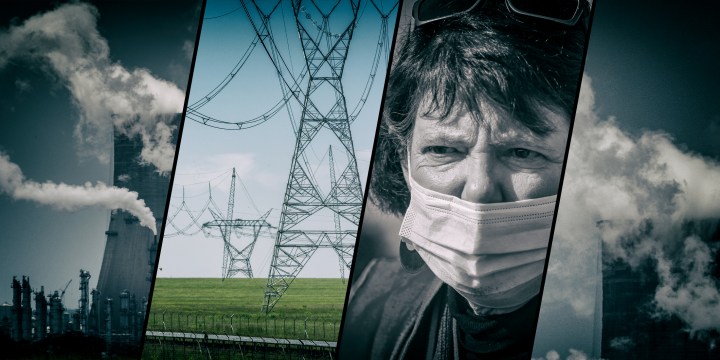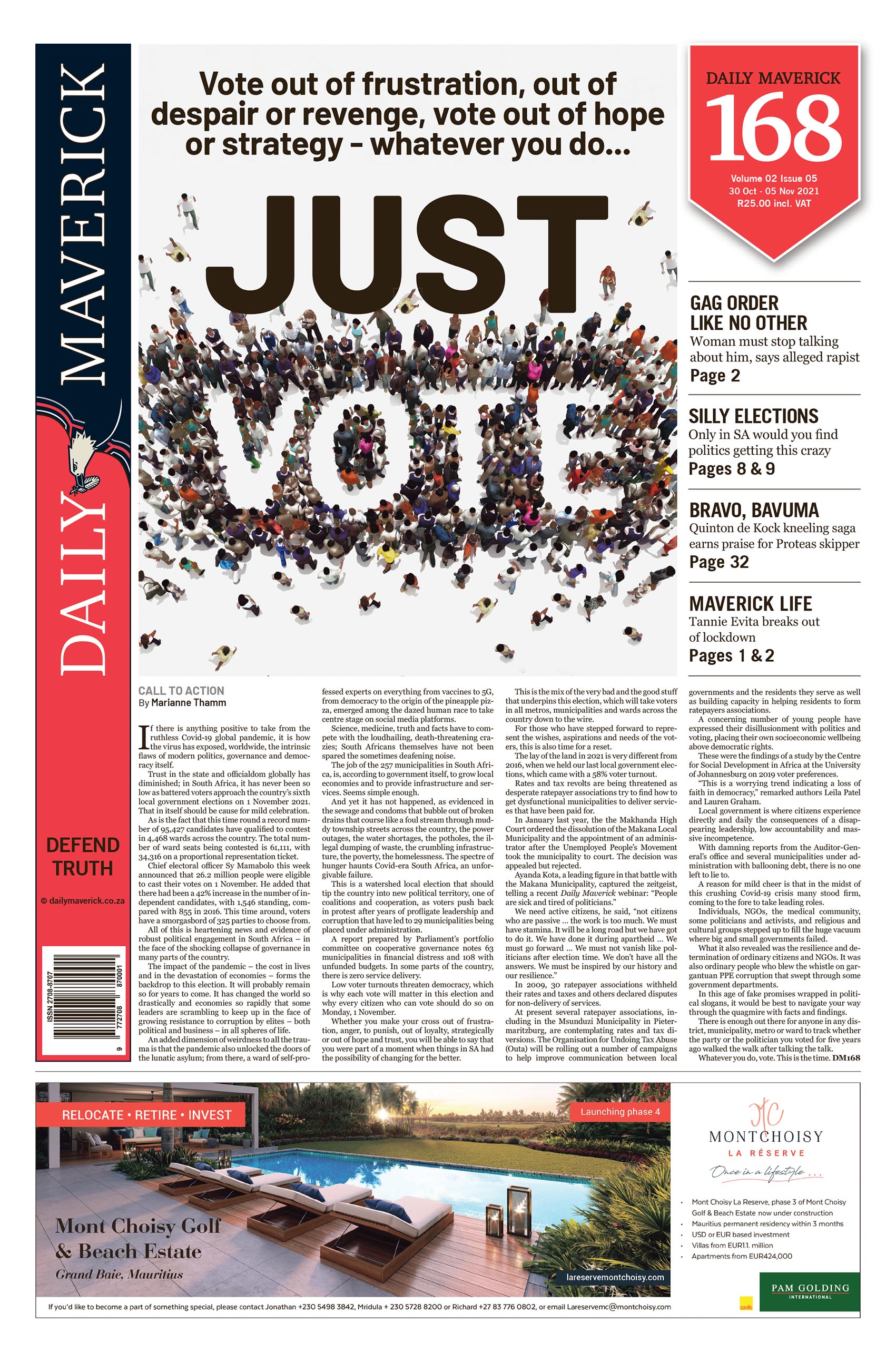CLIMATE CONFERENCE
South Africa goes into COP26 with justice in mind

The country heads to the meeting with a clear mandate: secure funding and ensure Paris Agreements are upheld.
As host city of the 2021 United Nations Climate Change Conference, Glasgow will be abuzz with international delegations this week as they negotiate how best to ensure global average temperature increases stay below 1.5°C.
South Africa heads to the UK city with a clear mandate: secure funding and ensure Paris Agreements are upheld. Local organisations support this stance, but some criticise that the position might be too focused on finance.
South Africa set ambitious targets in its recently updated Nationally Determined Contributions (NDCs) and it needs equally ambitious financial commitments to meet those targets, a lead negotiation point of the country at the COP26 meetings.
The country intended to negotiate for the agreements by the world leaders under the UN Framework Convention on Climate Change and the Paris Agreement to be met, said Forestry, Fisheries and Environment Minister Barbara Creecy at a recent media briefing.
Read: A beginner’s guide to all things COP26
Some of these objectives include global goals on mitigation, adaptation and support (especially financial) for developing countries to limit the consequences of the climate crisis to which developing countries are so vulnerable.
Funding has been a key talking point ahead of the negotiations and South Africa joins the voices that will be demanding that developed countries meet their climate finance pledges made in 2009, and to further increase those commitments.
Creecy said at a previous briefing that developed countries needed a potential $750-billion a year by 2030 as a funding foundation from which to leapfrog. Developed nations had pledged $100-billion a year to developing nations, but had only met a target of $80-billion in 2019.
COP26 in partnership with Canadian Environmental Minister Jonathan Wilkinson saw developed countries acknowledge their shortfall in a climate financing plan released this past week.
The countries have now pledged to meet their commitments by 2023, with financing expected to increase by 2025.
Mitchelle Mhaka, African Climate Alliance education coordinator, told DM168 that climate financing needed to be the focus during negotiations, adding that the just transition the organisation (alongside other activists) was calling for was costly.
“We need climate funding that was promised and more to make up for the missed years. It’s crucial that we receive this as developing countries were used to build the economies of developed countries,” she said.
Creecy said climate finance instruments should focus on being inclusive of the right mix of grants, concessional loans and private investment that didn’t leave countries further indebted.
“The position has a heavy reliance on access to finance mechanisms to realise more ambition. While this makes sense, it also leaves the country largely beholden to lender conditions that may jeopardise the future of youth generations,” Thandolwethu Lukuko, South African Climate Action Network national node coordinator, told DM168.
Financing plays an important role in ensuring that developing countries such as South Africa meet their mitigation and adaptation goals as specified in recently updated NDCs ahead of COP26.
“While South Africa has improved its NDCs ahead of COP26, it is still highly insufficient for our contribution to a climate just world.
“We need our public banks to stop funding fossil-fuel projects, and our minister of mineral resources and energy to stop blocking our much-needed just transition to renewable energy and a Green New Eskom,” said Glen Tyler-Davies, South Africa Team Leader at 350Africa.org.
The country lowered its emissions target to between 350 and 420 metric tonnes of carbon dioxide equivalent, its lower range being in line with the Paris Agreement’s 1.5°C temperature target. The updated NDCs also bring forward emission decline to 2025 from 2035.
James Reeler, senior climate specialist at WWF South Africa, said the country was pushing hard to secure climate financing owed by the developed world. Reeler added that essential to attaining the funding was ensuring decarbonisation and development.
“WWF strongly supports this, and is happy that South Africa has improved its NDCs, but we feel that by failing to specify what [SA] is prepared to do unconditionally, it has missed taking the moral high ground in the negotiations,” Reeler told DM168.
Lowered NDCs are indeed a step in the right direction. To adequately achieve these, however, South Africa’s major emitters such as Eskom need to be brought into line through a just transition that will see the nation’s heavy reliance on coal drastically reduced from its near 80% dependence – also a goal that requires funding.
Creecy said in the briefing that South Africa had secured $1-million from the Clean Technology Fund to develop a just transition investment plan, as part of a $2.5-million allocation from the fund.
“The focus of this investment plan is the Eskom energy transition, including repowering and repurposing of retiring coal plants and investment in new low carbon generation capacity. We hope to use the informal side meetings that take place at COP26 to generate further interest in supporting the country’s just transition to a low carbon economy and climate resilient society,” Creecy said.
“The emphasis on a just transition is crucial. Our society is still suffering the legacy issues of apartheid and in order for the country to move to a lower carbon economy, we cannot leave others behind. Justice is the most important aspect of the transition,” Lukuko said.
South Africa’s position includes the completion of voluntary carbon markets (pricing carbon emissions or a carbon tax), adaptation as well as loss and damage. In a previous briefing, the minister highlighted the need for transparency in implementing the outlines of Article 6 of the Paris Agreement.
Lukuko said SA needed a loss and damage fund, as well as a good balance between adaptation and mitigation financing.
Creecy said the Green Climate Fund, which is set up to respond to and invest in climate-resilient developments, is skewed towards mitigation efforts, limiting adaptation efforts, which have received less than $5.5-billion a year between 2014 and 2018.
The most ambitious COP meeting is here and while organisations and the department aim for developed nations to meet their climate finance commitments, there are other factors at play to make the discussions successful for South Africa.
“The Glasgow outcome should be a package deal that advances the negotiations and all three aspects of the Paris Agreement, namely mitigation, adaptation and the means of implementation of climate action. South Africa stands ready to play a constructive role for the success of COP26,” Creecy said. DM168
This story first appeared in our weekly Daily Maverick 168 newspaper which is available for R25 at Pick n Pay, Exclusive Books and airport bookstores. For your nearest stockist, please click here.






















 Become an Insider
Become an Insider
Comments - Please login in order to comment.